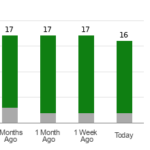
Biopharma firm Atai Life Sciences ATAI unveiled positive results from a Phase 1 clinical study on MDMA R-enantiomer, EMP-01, aimed at treating PTSD.
The study, which involved 32 healthy participants, assessed EMP-01’s safety, tolerability, pharmacokinetics (PK), and pharmacodynamics (PD). The participants were divided into four cohorts and received varying doses of EMP-01 or a placebo.
According to Atai, the study demonstrated that the compound was well-tolerated, with anticipated and non-severe treatment-related adverse events. The study also revealed dose-proportional pharmacokinetic profiles and dose-dependent subjective reports and blood-based biomarker changes.
Atai’s CEO and co-founder, Florian Brand, emphasized EMP-01’s unique characteristics in the context of extensive research into MDMA as a potential treatment for mental health disorders. He expressed the team’s enthusiasm for exploring the implications of the study’s findings for further clinical development.
Significance of the Study
Phase 1 studies serve as the initial assessment trials, determining the highest safe dosage for a new therapeutic without causing severe side effects. The study successfully met its primary objective, demonstrating EMP-01’s great tolerability and lack of severe treatment-related adverse events.
Chief Scientific Officer Srinivas Rao highlighted the distinct pharmacology of MDMA’s two enantiomers (S- and R-) and underscored the study’s significance in assessing the PK and PD of R-MDMA. The study showed notable differences in the subjective experience of R-MDMA compared to published reports on racemic MDMA, potentially implying its applicability in various mental conditions.
Atai intends to present additional clinical data from the study at an upcoming medical meeting.





